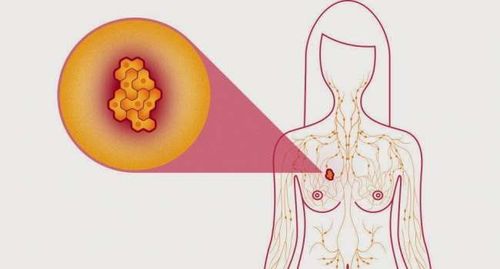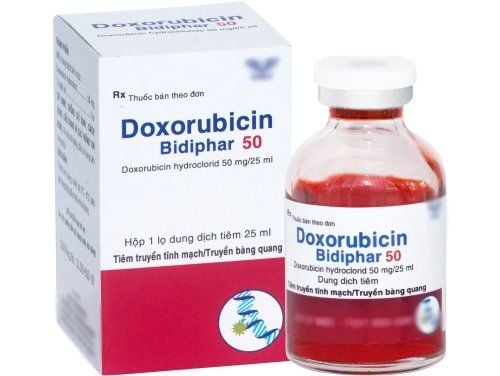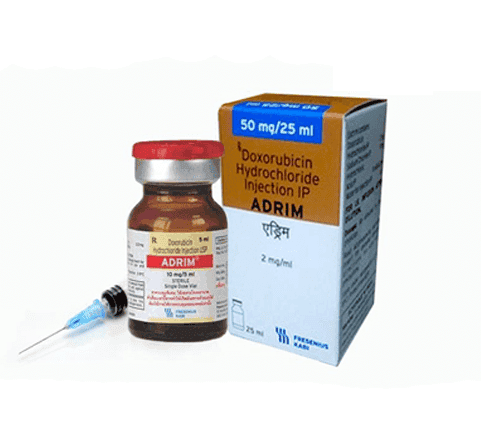This is an automatically translated article.
The article was written by Master - Doctor Mai Vien Phuong - Head of Department of Gastrointestinal Endoscopy - Department of Medical Examination & Internal Medicine - Vinmec Central Park International General HospitalLynch syndrome is an autosomal dominant disorder caused by germline mutations in DNA mismatch repair (MMR) genes. Previous studies have shown that carriers of the MMR gene mutation have an increased risk of colorectal, endometrial, and several other cancers following an initial diagnosis of colorectal cancer. The authors estimated cancer risk after endometrial cancer diagnosis for women with MMR gene mutations. A large study was carried out to evaluate this problem.
1. Research overview of the authors
1.1. Research Methods
The authors collected data from a cohort of 127 women diagnosed with endometrial cancer and carriers of mutations in one of four MMR genes (30 carriers in MLH1, 72 in MLH1, 72 in MSH2, 22 in MSH6 and 3 in PMS2). The authors used the Kaplan-Meier method to estimate the 10- and 20-year cumulative risk for each cancer. The authors estimated age-, country-, and calendar-cycle-specific standardized incidence (SIR) for each cancer, compared with the general population.1.2. Results of the study
After endometrial cancer, women who carry the MMR gene mutation have a 20-year increased risk of other cancers as follows: Colorectal cancer (48%, 95% confidence interval [CI] =) 35% to 62%); cancer of the kidney, renal pelvis or ureter (11%, 95% CI = 3% to 20%); urinary bladder cancer (9%, 95% CI = 2% to 17%); and breast cancer (11%, 95% CI = 4% to 19%). Compared with the general population, these women have a 58.3% higher risk of colorectal cancer; kidney, renal pelvis or ureter cancer (up to 48.6%); bladder cancer (up to 42.9%) and breast cancer (up to 4.14%).1.3. Conclusion of the study
Women with Lynch syndrome diagnosed with endometrial cancer have an increased risk of certain cancers, including breast cancer.
Phụ nữ mắc hội chứng Lynch làm tăng nguy cơ ung thư vú
2. Specific cancer risk in MMR . mutation carriers
About 5% of women with endometrial cancer have a family history of endometrial cancer and 2% have a family history of colorectal cancer. Approximately 2% of endometrial cancer cases and 6% of endometrial cancers diagnosed before age 70 are due to Lynch syndrome. Lynch syndrome is an autosomal dominant disorder usually caused by germline mutations in one of four DNA mismatch repair (MMR) genes - MLH1, MSH2, MSH6 or PMS2 - or deletions in the EPCAM gene leading to any MSH2 activation is located nearby. Carriers of MMR mutations substantially increase the risk of colorectal, endometrial, stomach, ovarian, urinary tract, brain, small intestine, hepatobiliary, and pancreatic cancers compared with the general population.2.1. Risk of subsequent cancers after being diagnosed with endometrial cancer in MMR gene mutation carriers
The risk of subsequent cancers following a diagnosis of endometrial cancer in MMR gene mutation carriers has not been established. To the authors' knowledge, only one study reported cancer risk after a diagnosis of endometrial cancer in women with Lynch syndrome. Estimated cumulative risk of 40% for colorectal cancer and 75% for cumulative risk of any malignancy within 26 years of endometrial cancer. However, this study was small in size (39 women) and used the Amsterdam criteria, i.e. a family history of cancer often associated with inherited mutations in the MMR gene, to diagnose Lynch syndrome. not the subject's own MMR mutation status.Knowledge of subsequent cancer risk for women who carry MMR mutations and have been diagnosed with endometrial cancer may influence the clinical management of these women this, including subsequent cancer surveillance. In this study, the authors estimated the risk of colorectal cancer and other cancers after endometrial cancer for women with confirmed carriers of germline mutations in the MMR gene.
2.2. Increased risk for many types of cancer, including breast cancer
Previous research on cancer risk for people with Lynch syndrome has mostly focused on first cancer risk with minimal investigation of cancer risk after cancer diagnosis. initial. Endometrial cancer is one of the most commonly diagnosed cancers in women with Lynch syndrome.Clarifying the risk of subsequent cancers may facilitate the development of appropriate cancer surveillance strategies for endometrial cancer survivors. In this study, the authors estimated the risks for women with Lynch syndrome who had been diagnosed with endometrial cancer and observed an increased risk for many types of cancer, including breast cancer.
Overall, the cancers that occurred after endometrial cancer in this study were not out of line with the previously described primary cancer risk for women with MMR gene mutations. The notable exception is the increased risk of breast cancer.

Hội chứng Lynch làm tăng nguy cơ ung thư vú với gen MMR
A previous study observed that about half of breast cancer cases in women with Lynch syndrome did not have expression of a mismatch repair protein in the mutated gene, suggesting that the mutation Germline lines in the MMR gene may contribute to the development of breast cancer in some women. A Finnish study found that the prevalence of MMR-deficient breast cancer (defined as the absence of MMR protein expression and/or microglial instability) was statistically significantly higher in those with mutation carriers compared with non-carriers (65% vs 0%; P < .001).
A prospective study also found an increased risk of breast cancer for women with MMR gene mutations. In this study, the 20-year risk of breast cancer was 11% (95% CI = 4% to 19%), which is not the level recommended by the American Cancer Society for breast cancer screening with MRI. . The breast cancer risk threshold required for breast MRI screening recommended by the American Cancer Society is about 20% to 25% or higher lifetime risk.
2.3. Subsequent cancer risk for women with MMR gene mutations who have had endometrial cancer may be different than for women without any cancer.
This problem may have an unmeasured polygenic effect leading to the first cancer invasion. Compared with a prospective study of cancer risk for non-cancerous MMR mutation carriers, the authors' estimates of post-endometrial cancer cancer risk were not significantly different. That is, the authors' study does not provide evidence that prior diagnosis of endometrial cancer increases the risk of subsequent primary cancers.The authors also compared cancer risks after endometrial cancer with previously reported cancer risks after colorectal cancer for MMR gene mutation carriers. Because of the large overlap in the confidence intervals of the cancer risk estimates from the two studies, the authors concluded that there was no evidence for a significant difference in risk regardless of the location of the cancer. initial.
The authors' analyzes do not allow the authors to make surveillance recommendations for mutation carriers with endometrial cancer, as opposed to mutation carriers for colorectal cancer or people with no previous cancer diagnosis. Further studies with sufficient statistical power are needed to fully differentiate the cancer risks for MMR mutation carriers from different cancers and those with no cancers at all.
Given previous evidence of heterogeneity in cancer risk due to mutated specific MMR genes, the authors attempted to identify differences in cancer risk (if possible). However, the authors drew most of their conclusions from analyzes of all MMR mutation carriers combined because even with a large sample, there was insufficient statistical power. to fully differentiate cancer risk for carriers of each specific gene mutation.
The authors observed that the risk of colorectal cancer after endometrial cancer was lower for the MSH6 carrier mutation than for the MLH1 and MSH2 mutants. This finding is consistent with previous studies that reported a lower cancer risk for MSH6 mutation carriers compared with MLH1 and MSH2 mutation carriers with no prior cancer diagnosis.
2.4. Limitations of this study
This study has some notable limitations. With that said, even with a large sample size, there is not enough statistical power to fully distinguish between cancer risks for specific MMR gene mutations. The authors did not have information on treatment history for the initial diagnosis of endometrial cancer, which may influence subsequent cancer risk.It is possible that the authors' results do not apply to women with a poor prognosis because they are less likely to be included in this analysis (i.e. less likely to provide blood samples for genetic testing and complete the questionnaire). Due to the lack of comparative incidence data, the authors were unable to estimate site-specific SIRs separately for renal, renal pelvis, and ureteral cancers; instead, the authors reported risks for all urinary tract cancers combined.

Xét nghiệm di truyền để biết rủi ro với hội chứng Lynch
The authors do not know if the women in this study were informed of their MMR gene mutation and, if so, how this is related to their cancer diagnosis. Mutation testing is done in the context of research, and although mutation returns are offered as part of the process, some participants remain unaware of their mutation status. Knowledge of the MMR gene mutation status of women or their clinicians may have altered the frequency of colorectal cancer and polyps follow-up.
3. Conclusion
Women who carry MMR mutations with a previous diagnosis of endometrial cancer have an increased risk of a range of cancers, including breast cancer. This study provides the most accurate data on their possible cancer risk, providing the basis for effective long-term monitoring and risk reduction strategies. Further larger studies are recommended to refine separate risk estimates for specific MMR gene mutations to provide optimal information for clinical risk management practice and policy.Please follow the website: Vinmec.com regularly to update many other useful information.
Please dial HOTLINE for more information or register for an appointment HERE. Download MyVinmec app to make appointments faster and to manage your bookings easily.













